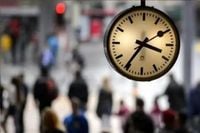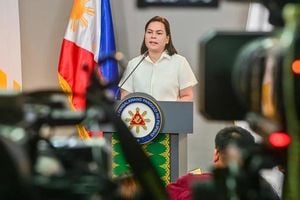The Ministry of Digital Transition and Administration Reform has announced that the legal time in Morocco will be adjusted by adding 60 minutes starting Sunday, April 6, 2025, to coincide with the end of the holy month of Ramadan. This change is set to take place at 2:00 AM on that Sunday morning.
This decision is in line with the provisions set out in Article 2 of Decree No. 2.18.855, issued on October 26, 2018, which governs the country’s legal time adjustments. The ministry emphasized that the practice of adjusting the clock is a standard procedure that occurs yearly following Ramadan to align with seasonal time changes.
The timing of these adjustments is significant for Moroccan citizens, as they affect daily life, including work schedules and prayer times. Ramadan, a month of fasting and reflection, concludes in late March 2025, thus making this year’s time change particularly relevant to those observing the final days of fasting.
The introduction of daylight saving time is expected to provide additional daylight in the evenings, which is often viewed positively by many for leisure and recreational activities. However, for some, it may require adjustments, especially for families with young children who may be impacted by the later shifts in the clock.
Every spring, similar changes are implemented across various countries as they transition into warmer seasons, and Morocco is no exception. This ritual aligns the country more closely with European time zones, facilitating smoother interactions in trade, tourism, and international relations.
As the 6th of April approaches, residents are advised to prepare for this shift and recalibrate their clocks accordingly. Many people often express mixed feelings about the shift—while some relish the extended evening light, others lament the potential disruption to their sleep schedules, particularly in the days immediately following the transition.
Moreover, discussions surrounding daylight savings time often evoke opinions about its practicality and relevance in modern society. Some argue that the tradition is outdated and should be re-evaluated given the advancements in technology and changes in lifestyle that lessen the need for such adjustments.
In Morocco, the government’s decision reflects ongoing deliberations on time regulation that seek to optimize daily life for its citizens while aligning with broader regional standards. As such changes occur, public opinion remains a crucial aspect of the dialogue surrounding time adjustments and their implications for community life.
As the nation prepares for what many consider a regular seasonal adjustment, the implications of this change may resonate far beyond just the simple act of moving clocks forward an hour. It encompasses cultural, social, and economic considerations that are vital for the Moroccan people.
This annual changing of the clock is not merely a technical adjustment; it serves as a reminder of Morocco's relationship with the passing seasons and timekeeping traditions. With Ramadan concluding just before this change, it provides a moment of reflection and reconnection for many Moroccans as they transition into normalcy after the fasting month.




